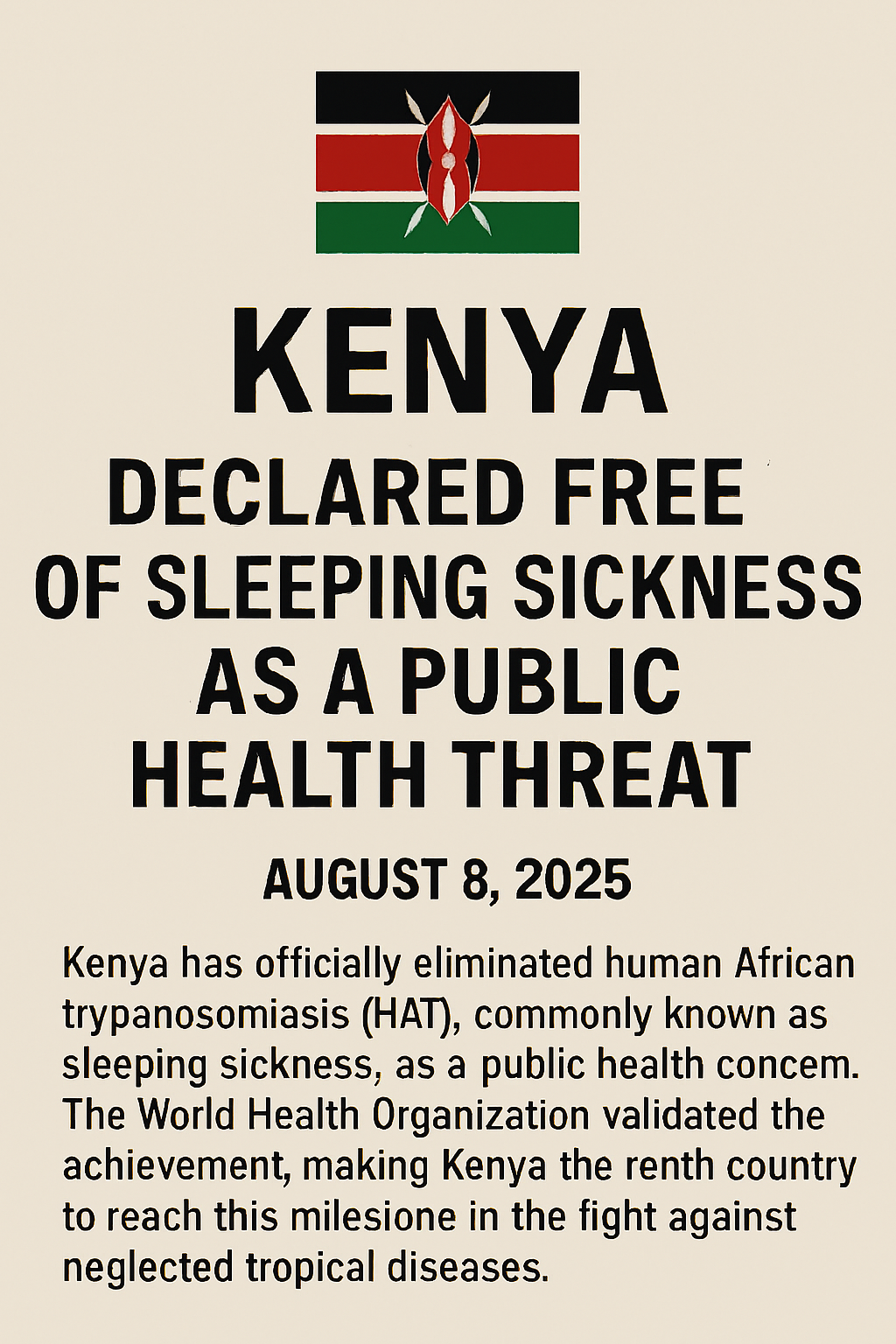🗓️ News Date: August 8, 2025
Kenya has officially eliminated human African trypanosomiasis (HAT), commonly known as sleeping sickness, as a public health concern. The World Health Organization (WHO) validated the achievement, making Kenya the tenth country to reach this milestone in the fight against neglected tropical diseases (NTDs).
This marks Kenya’s second major NTD elimination, following its certification as free of Guinea worm disease in 2018. WHO Director-General Dr. Tedros Adhanom Ghebreyesus praised the country’s efforts, calling it a significant step toward a continent free of neglected diseases.
🦟 Understanding HAT
HAT is a parasitic disease transmitted by tsetse flies, primarily affecting rural communities engaged in agriculture, fishing, and livestock. Kenya is affected by the rhodesiense form (r-HAT), which progresses rapidly and can be fatal within weeks if untreated.
🏥 Decades of Progress
Kenya’s journey began in the early 20th century. No indigenous cases have been reported since 2009, and the last known exported cases occurred in 2012. The country has since intensified surveillance across six historically endemic counties, equipping 12 health facilities with advanced diagnostic tools and trained personnel.
Efforts also include monitoring tsetse fly populations and animal trypanosomiasis, supported by the Kenya Tsetse and Trypanosomiasis Eradication Council (KENTTEC) and national veterinary authorities.
🗣️ Voices from the Frontlines
Health Cabinet Secretary Dr. Aden Duale hailed the achievement as a public health victory and a catalyst for economic growth. Dr. Patrick Amoth, Director General of Health, emphasized Kenya’s commitment to maintaining surveillance and care standards in line with WHO guidelines.
WHO Representative Dr. Abdourahmane Diallo credited the success to strong leadership, community engagement, and collaboration with partners such as FIND, Bayer AG, and Sanofi.
🌍 Global Context
Kenya joins Benin, Chad, Côte d’Ivoire, Equatorial Guinea, Ghana, Guinea, Rwanda, Togo, and Uganda in eliminating HAT as a public health problem. In total, 57 countries have eliminated at least one NTD, reflecting growing global momentum in disease eradication.
Kenya will now implement a post-validation surveillance plan to prevent resurgence and ensure rapid response to any future cases.
TWW - The World Wide: Global News,Local Impact.

